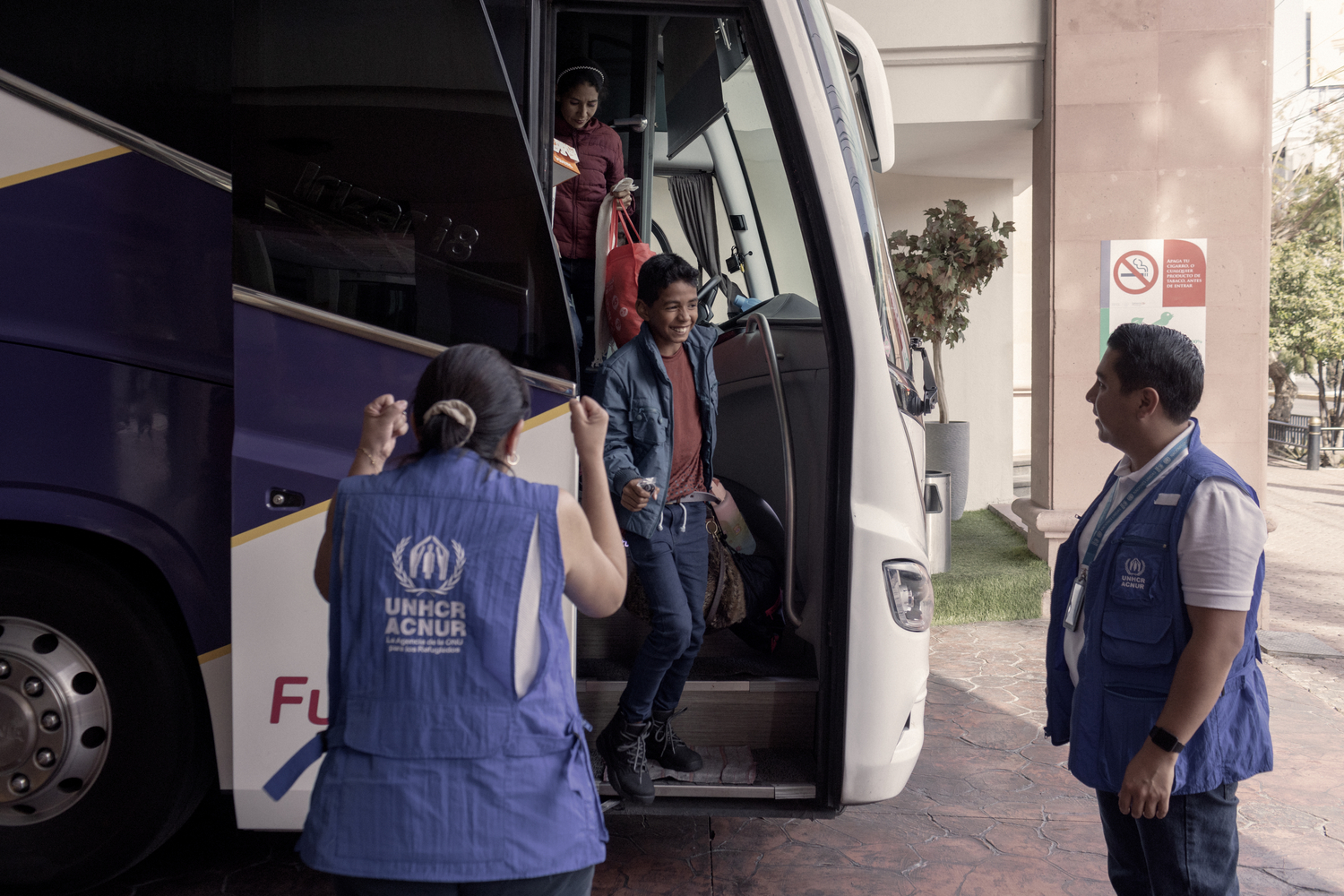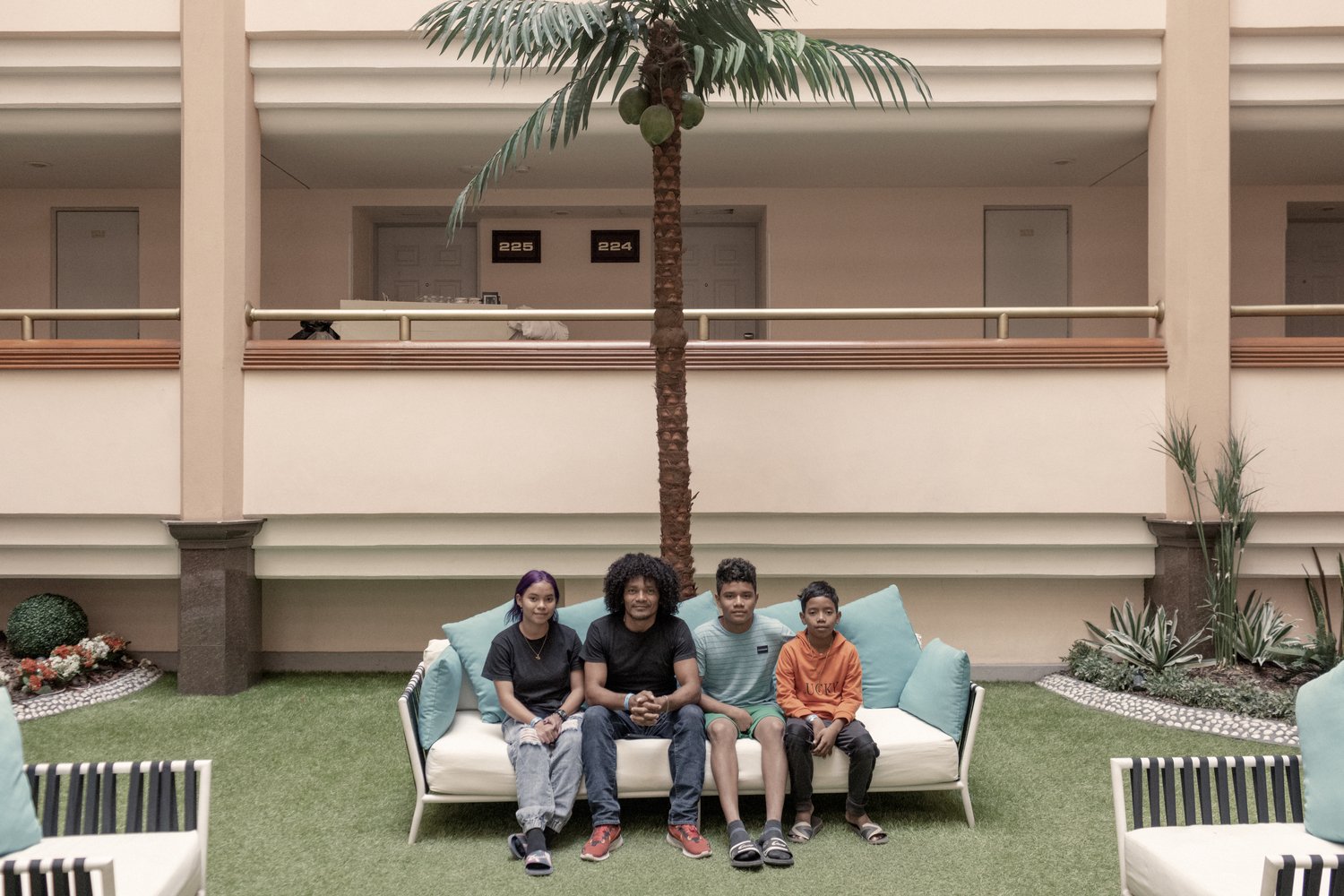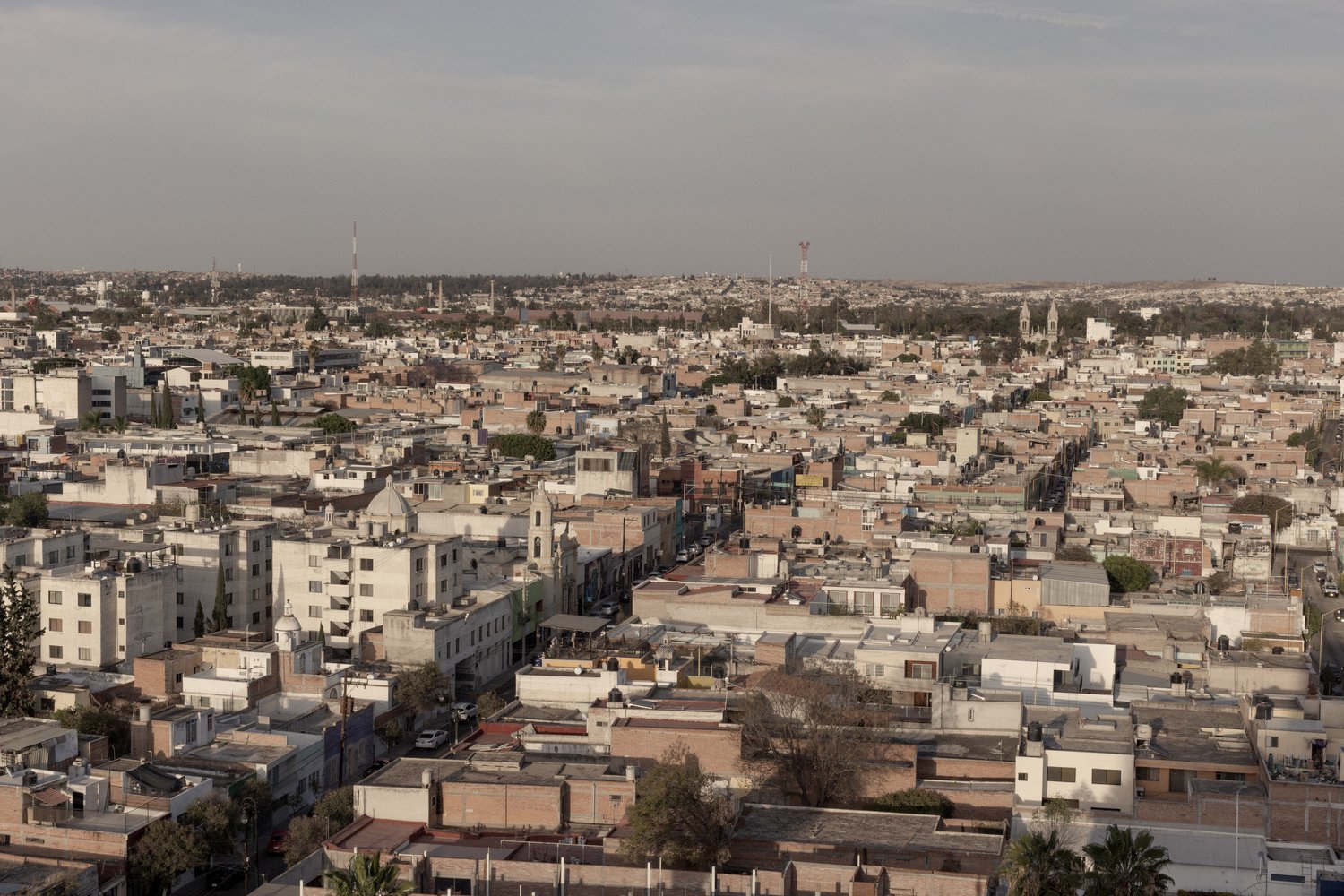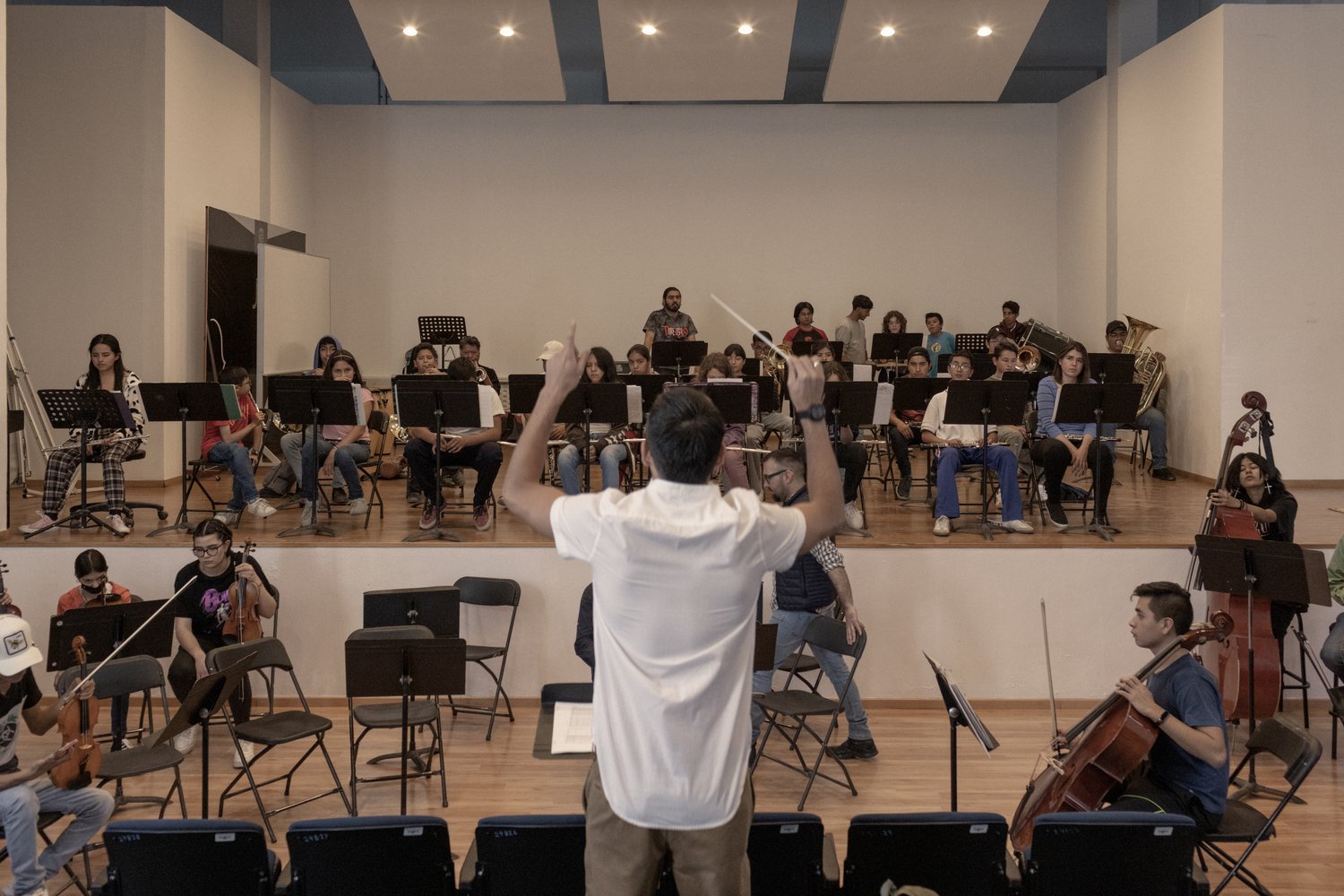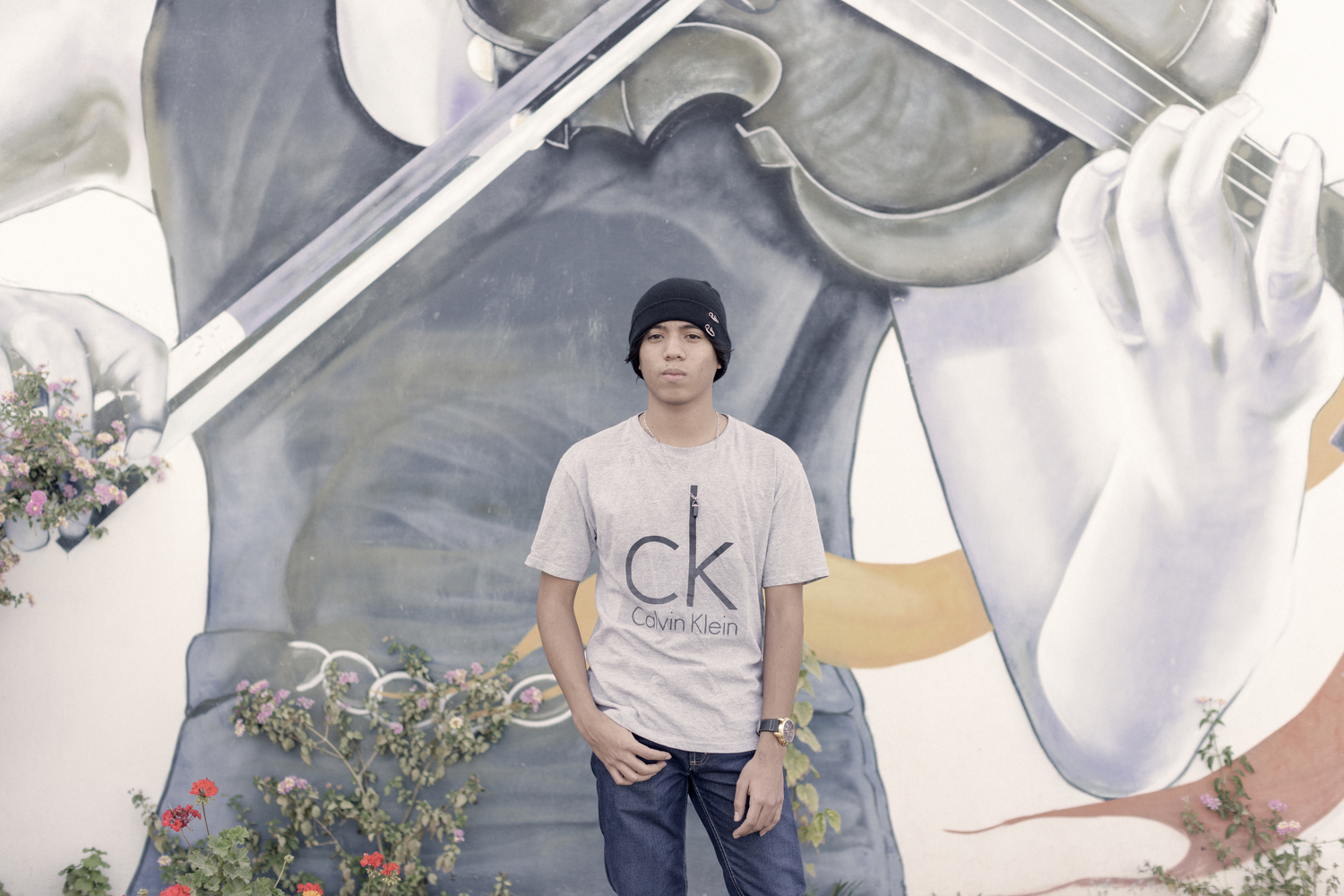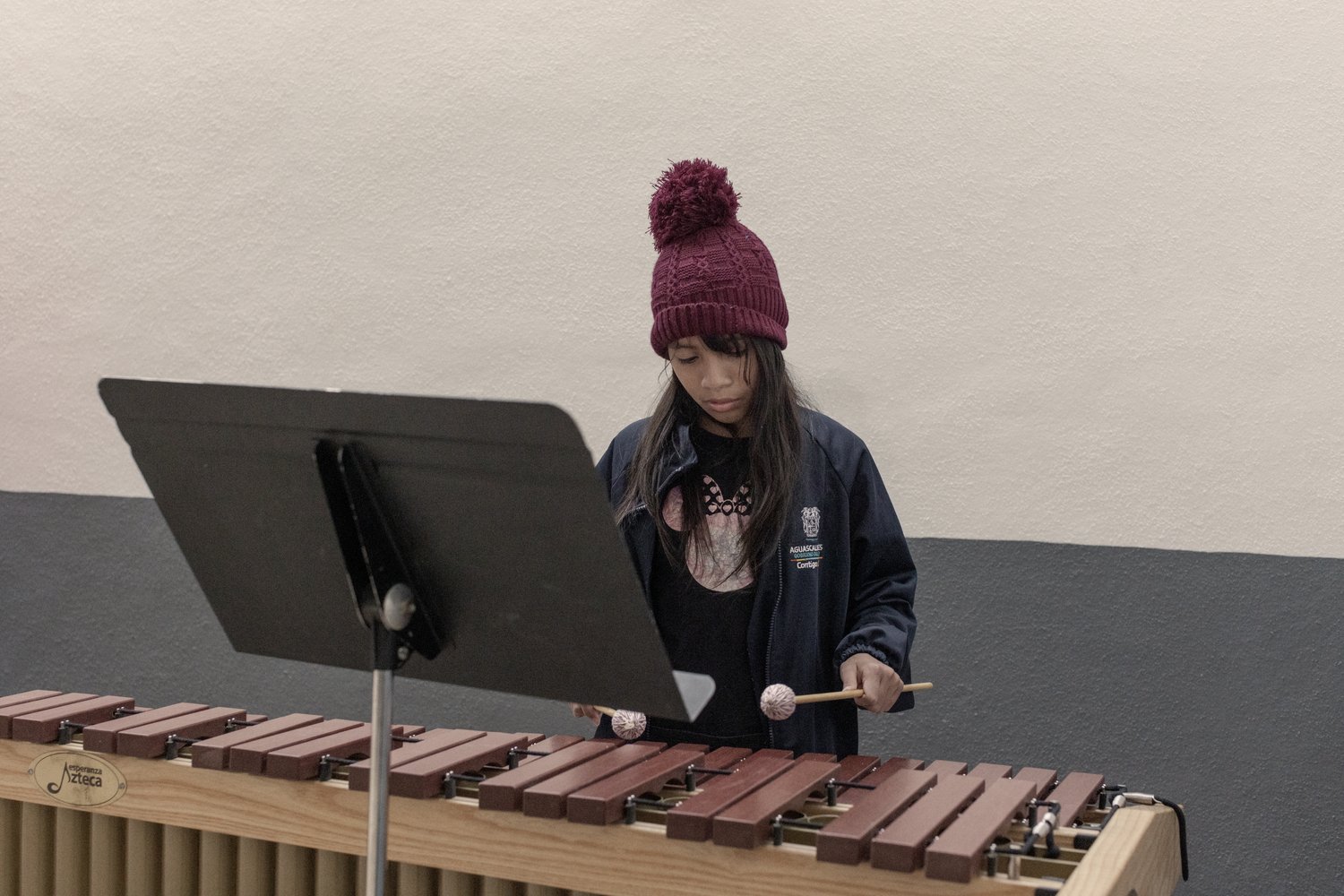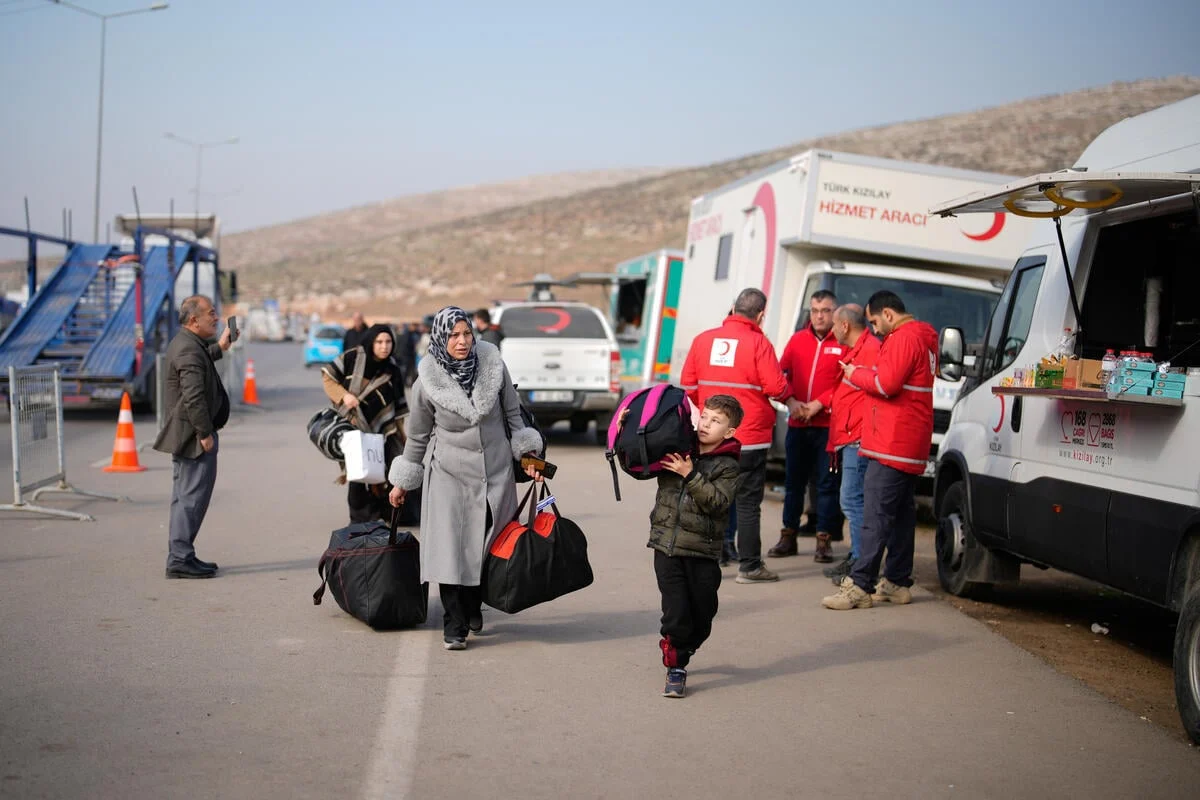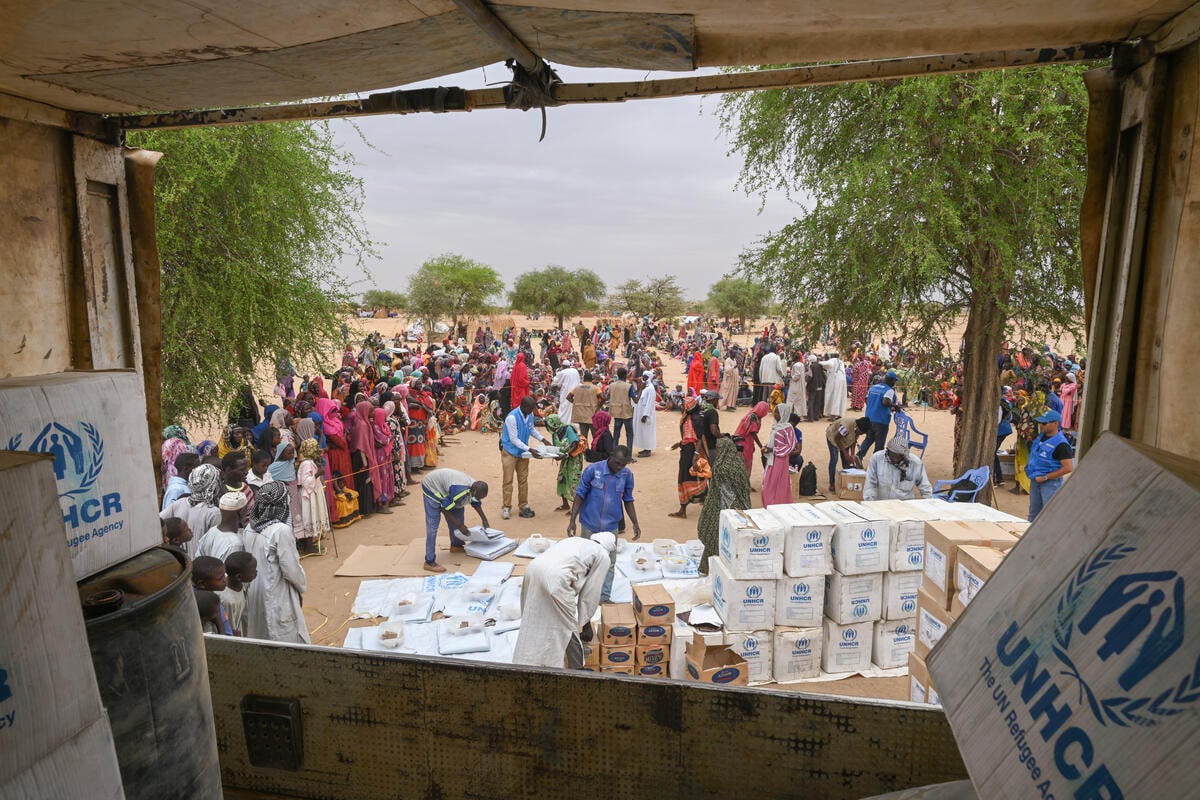Mexico’s industrial heartland offers jobs and a new start for refugees
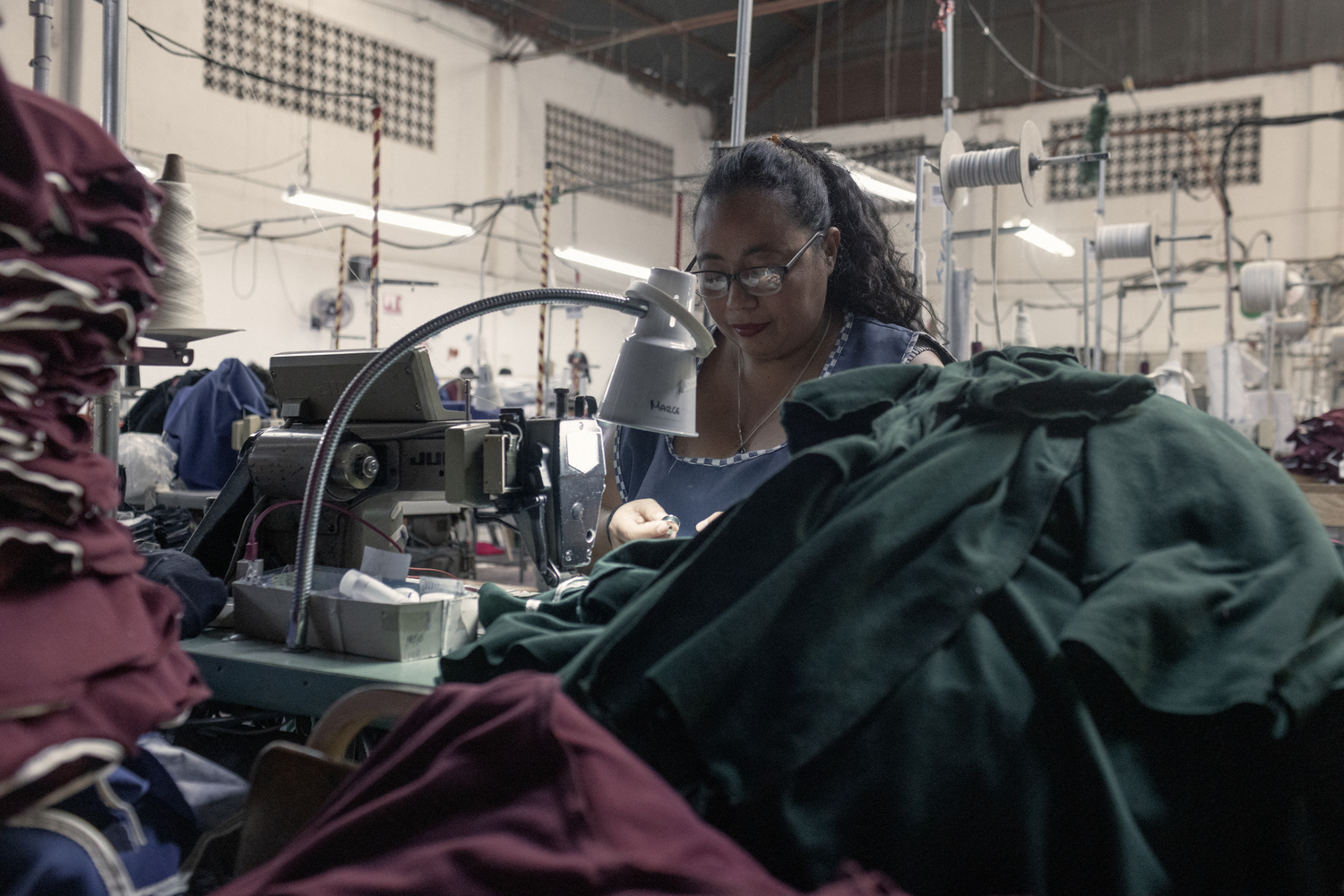
Mexico’s industrial heartland offers jobs and a new start for refugees
Daysi Cruz Martinez, a Honduran refugee, at work in a textile factory in Aguascalientes.
It is a big moment for Marcello*, 42, a single father from Honduras who has travelled here with his three children. “There’s a bit of fear because we’re here to start a new life and we don’t know anyone who can welcome us, but it’s a fresh start,” he said.
The family fled Honduras after a local gang tried to forcibly recruit his two sons, aged 12 and 16. “We couldn’t stay, our lives were at risk,” said Marcello. “I sold everything I could and with that we started our journey.”
The first stage of that journey ended in Tenosique in southern Mexico where Marcello worked odd jobs for eight months while they waited for their asylum process to be finalized. But like other towns and cities in southern Mexico where the vast majority of asylum-seekers arrive to the country, Tenosique could not offer the formal employment and stability he craved for his family.
He and the other refugees stepping off the bus are hoping to find those things in Aguascalientes, a small but growing city with booming automotive and textile sectors and a picturesque colonial-era downtown. It is one of 11 cities in central and north-eastern Mexico where refugees are being relocated from the south through an integration programme led by UNHCR.
New beginnings
Since it launched in 2016, the project has helped more than 31,000 people like Marcello start new lives in Mexican cities that can offer safe, affordable living conditions, formal job opportunities and access to education and health services. Aguascalientes alone has received 3,000 refugees and buses like the one Marcello arrived on are delivering new arrivals every couple of weeks.
They spend three nights at a hotel, receiving information from UNHCR and its partners about housing, documentation, and job opportunities and getting assistance with specific needs. A one-off cash grant then helps them to cover their first month’s rent and other costs.
Nohemi Enamorado*, 35, gets emotional when she recalls the moment nearly two years ago that she and her daughter Melly, now 13, arrived on the bus. “It was really pretty, and the people were nice … but coming to a new place on your own is complicated.
“I didn’t know anything about the city, all I had was a bit of background from UNHCR,” she said. “They talked about Aguascalientes being safe and I said: ‘That’s the place’. Safety was 100 per cent my number one priority.”
Back in San Pedro Sula, Honduras’s second largest city, Nohemi used to work for an investigative division of the local police force. She had resigned and requalified as a physical education teacher by the time back-to-back hurricanes struck northern Honduras in November 2020, but that did not stop her being harassed by the gangs who took over her neighbourhood in the wake of the twin disasters.
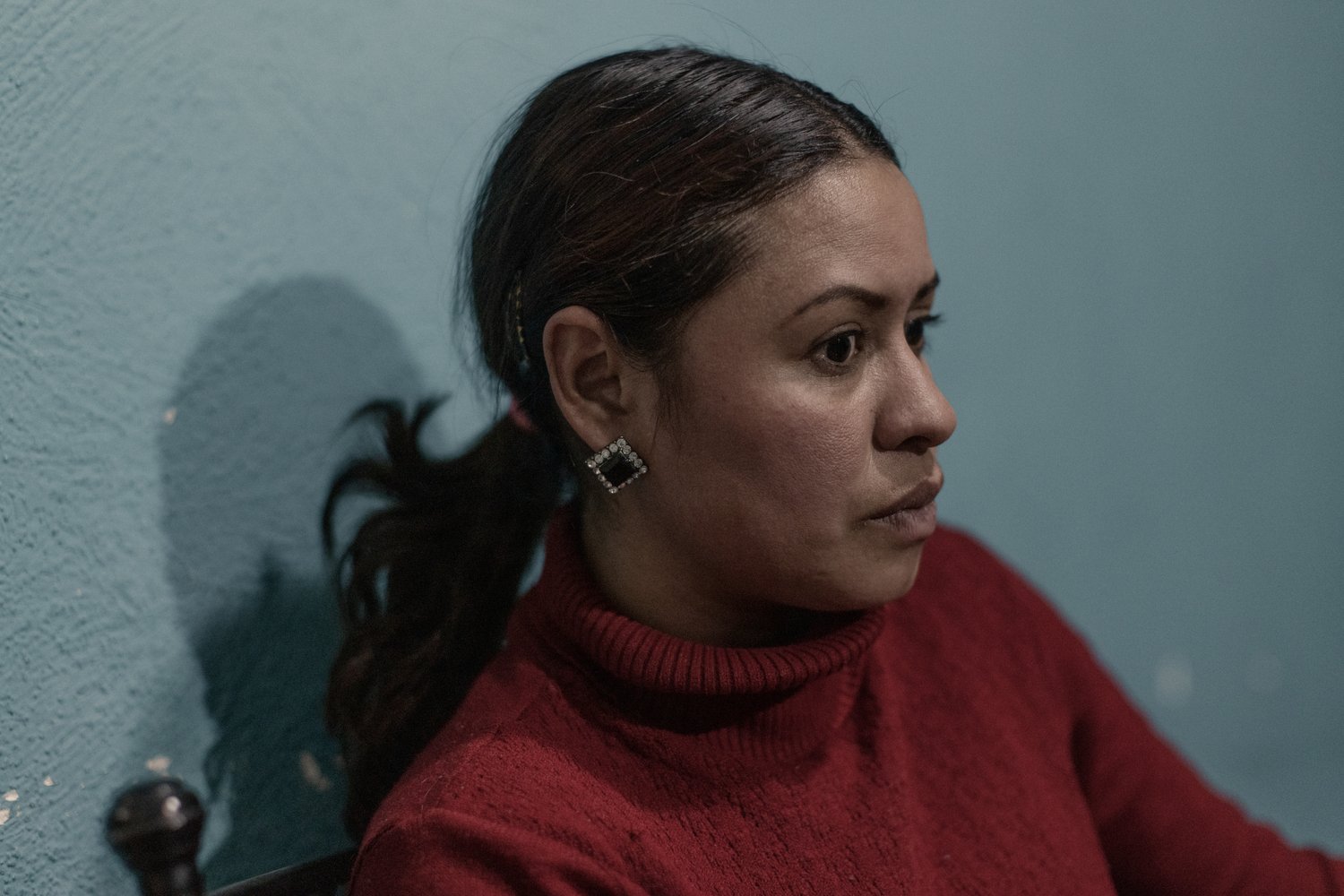
Honduran refugee Nohemi Enamorado* and her daughter, Melly, arrived in Aguascalientes nearly two years ago.
“When we had the floods, the lower areas of San Pedro Sula were most affected,” Nohemi explained. “People would go to shelters and the gangs invaded their houses, so that’s how it happened that they took over the area where I was living.”
Gang members started following her home from the gym where she worked and threatening her. Even after she quit her job and moved to her parent’s place in a different neighbourhood, she still felt unsafe and afraid for her daughter.
She and Melly crossed into southern Mexico from Guatemala with the idea that they would continue on to the United States. “But I found out about the UNHCR programme so I thought, okay, let’s at least try.”
Thousands of job openings
During their first six months in Aguascalientes, Nohemi worked in several different restaurants to get by, but they were casual jobs with no benefits. Last November, she applied for a job in the pharmacy of a large store and was hired. It is her first formal job in Mexico and comes with health insurance, predictable working hours and a regular salary.
There is no shortage of such jobs in Aguascalientes, according to Ricardo Adrian Muñoz Diaz, 51, who is the founder and General Director of Assoluto, a clothing manufacturer. “It’s a city that’s growing fast. In the last 15 years, we’ve had many companies coming in. For the textile industry, there are thousands of openings here,” he said from his office next to the factory floor where about 100 workers stitch together polo shirts.
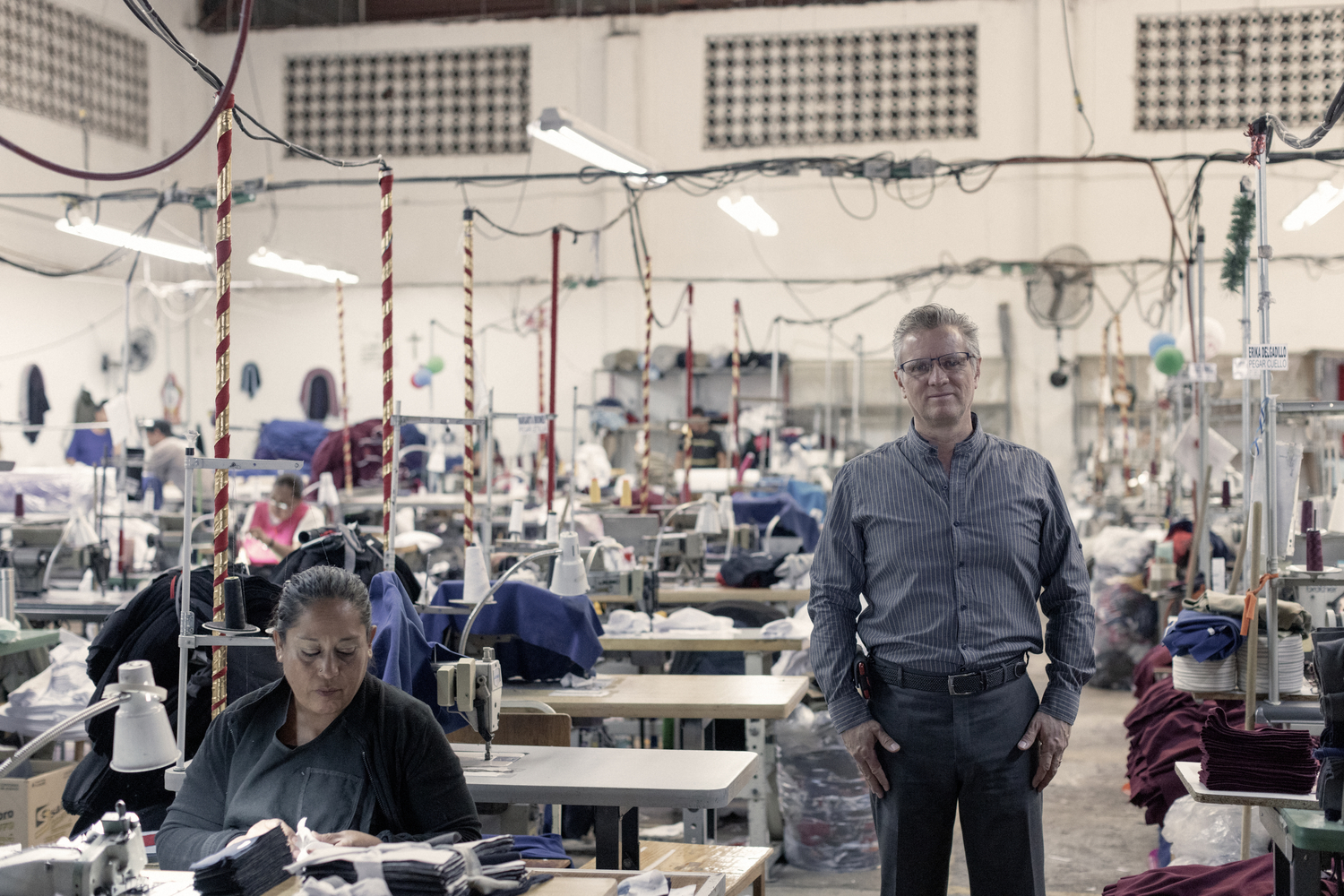
Ricardo Adrian Muñoz Diaz, General Director of Assoluto, a textiles company, hired a refugee to work in his factory and is willing to hire more.
His company is one of those working with UNHCR to help match refugees with jobs. “We’re helping place 50 people a month,” he said. “We always have vacancies for those that have experience and who want to settle here in Aguascalientes.”
Daysi Cruz Martinez, 46, found a job at the Assoluto factory about six months after arriving in the city through the integration programme. “It’s turned around my life completely,” she said.
Back in Honduras, the “maras” (gangs) were pressuring her son, Allan, to sell drugs for them. When Daysi found out, she quickly made the decision to leave the country. “It was very hard to leave everything behind. But if I had to do it all over again, I would.”
Making music together
Allan, now 18, has just finished high school and wants to study robotics or nano-technology if the family can find the money to send him to university. In the meantime, he and his 11-year-old sister, Emeli, are both part of a youth orchestra in the nearby suburb of Jesús María which brings together local kids from disadvantaged backgrounds and young refugees to learn instruments and play music together.
Allan and Emeli both play percussion: “Any instrument that can be hit,” as Allan puts it, although his favourite are the big drums. “I don’t go out much, so here is a moment to connect with other people,” he said.
The integration programme is not without its challenges – some of the refugees still struggle to open bank accounts and to find places for their children in local schools, while others choose to move on. But assessments carried out by UNHCR in the relocation cities have found no evidence of discrimination or crimes targeting refugees. “They usually find very friendly people,” said Paola Monroy of UNHCR. “I think if they’re committed, they can have a very good life here.”
“I want to stay in Mexico”
Nohemi has been surprised at how quickly Aguascalientes has come to feel like home. “I never thought I’d have a good quality of life in such a short time,” she said.
Although she enjoys her work at the pharmacy, she is eager to get back to teaching and is getting help from UNHCR to have her qualification recognized in Mexico.
“If I work in education, it’s going to give me more time with my daughter,” she said. “She’s 13 now and you have to pay close attention. I wish there were 28 hours so I could have four extra hours with her.”
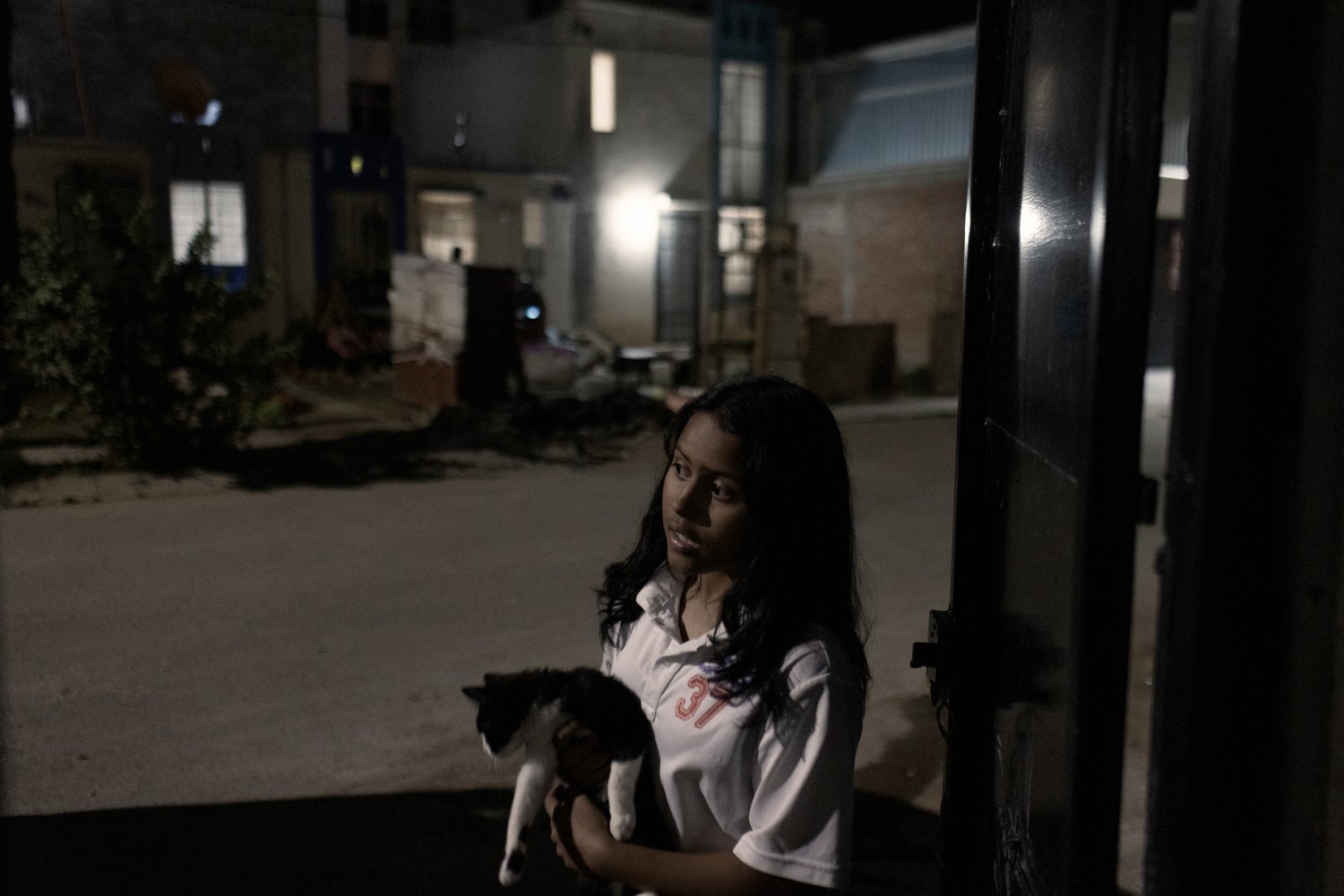
Nohemi's 13-year-old daughter, Melly, stands outside their rented home in Aguascalientes holding their cat.
With only one day off a week, she tries to spend it coaching Melly, who runs track, and attending her competitions. She has managed to acquire a few pieces of furniture for their small home on the outskirts of Aguascalientes, as well as a cat and an unruly puppy called Bella, to keep Melly company while she is at work.
“My goal is to stay here for ever. I really like this city, it’s very safe and peaceful,” she said, before adding that she has bigger plans for Melly. “I’d like her to study elsewhere so she can get a better opportunity. If I have to move with her, I will do that.
“But I want to stay in Mexico,” she said. “I want to visit my parents and my family, but I’m not going back to my country. If I have to die here, I will do that.”
*Names have been changed to protect identities.


